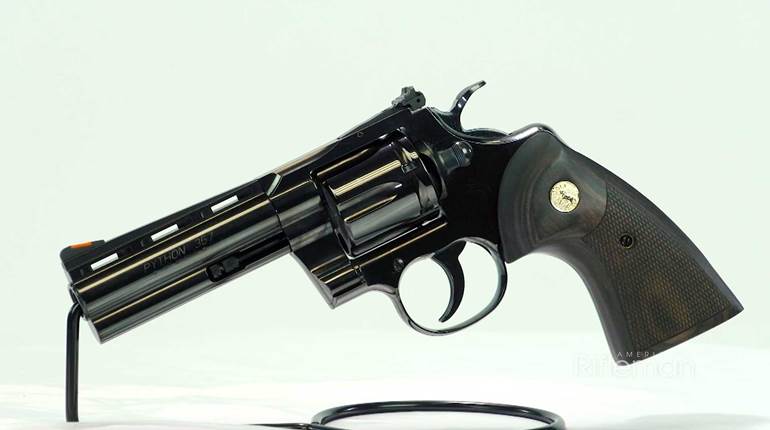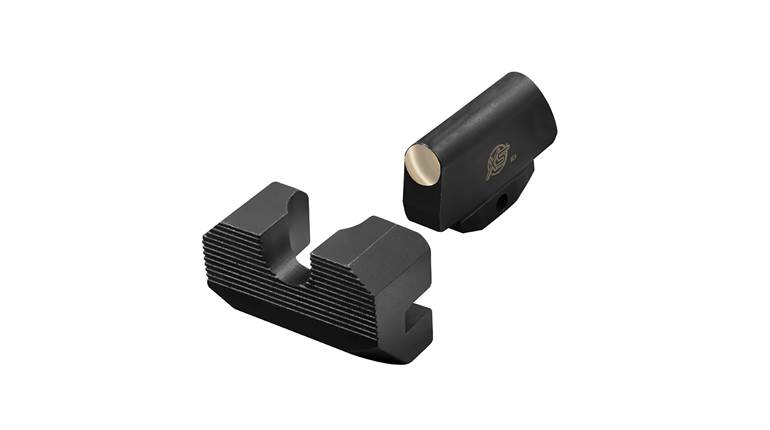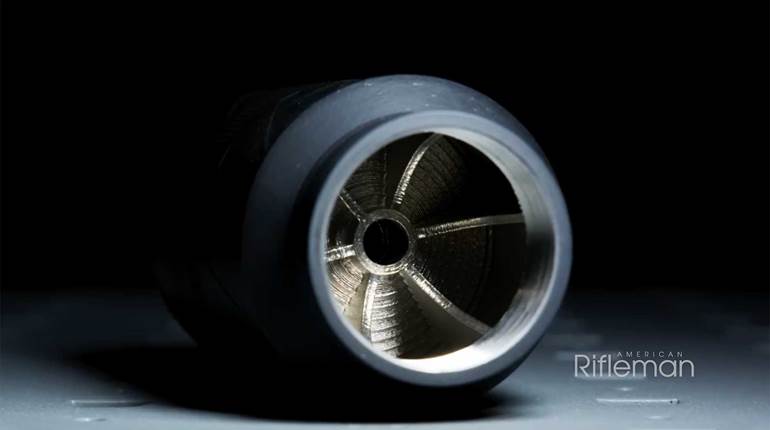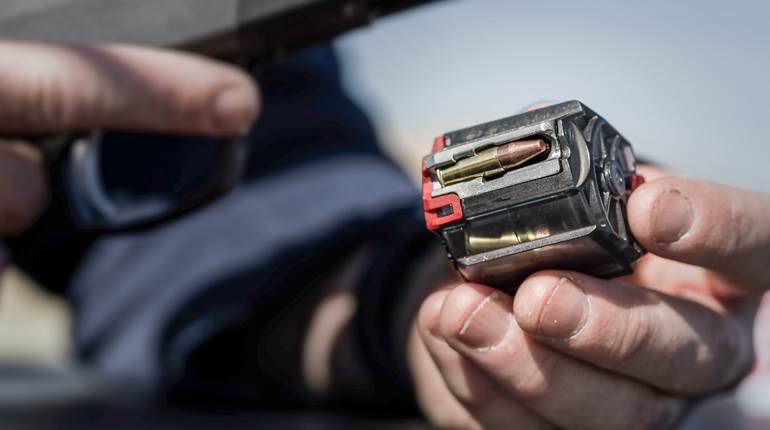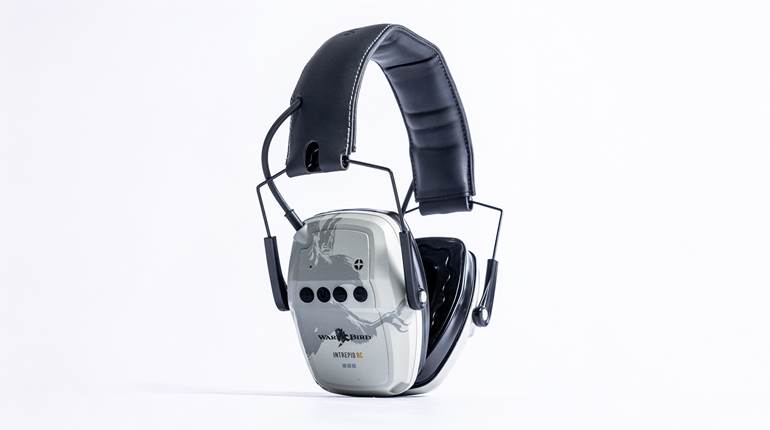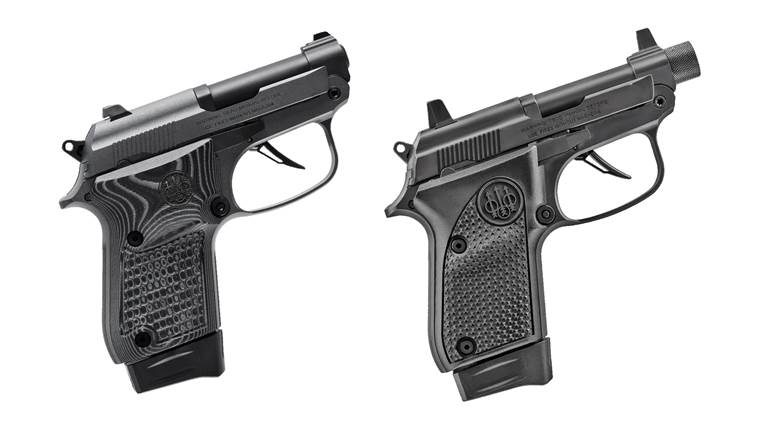
They say lightning doesn’t strike twice, but Colt Patent Firearms disproved that old adage. Colt’s first lightning strike occurred in 1877, with the appearance of its Self-Cocking Central Fire Revolving Pistol, more popularly known in its .38 Long Colt version as the Lightning—a moniker bestowed upon it by B. Kittredge & Co., one of Colt’s major distributors.
Evidently, the executives at Colt liked that nickname. When they came out with their new “trombone” or slide-action rifle in 1884—having shelved the previous Colt-Burgess lever-action in an alleged gentleman’s agreement with Winchester, which, in turn promised not to make any revolvers—it was dubbed the New Lightning Magazine Rifle. Obviously, Colt must have felt its agreement with Winchester only pertained to lever-action rifles. By putting the words “New” and “Magazine Rifle” fore and aft of the “Lightning” name, Colt attempted to dispel any confusion between its double-action revolver and its new repeating rifle.
Indeed, Colt’s slide-action rifle was the first such action type in the United States and enabled multiple shots to be rapidly fired simply by holding the trigger back while working the slide. (This rapid-fire feature is not present on current Lightning rifle replicas). Perhaps it was for this reason that the San Francisco Police Dept. purchased 400 Colt Lightnings in 1898, which were individually numbered and stamped “SFP” on the lower tang. The Lightning rifle was based upon a design by Dr. William H. Elliot, a dentist by trade but also a prolific firearm inventor who created the Remington Model 95 Double Derringer some 18 years earlier. Additional “Lightning” patents were granted later to Colt employees W.B. Franklin, F.F. Knous, F.W. Weatherhead and C.J. Ehbets.
Colt’s new rifle was initially brought out as a medium-frame model chambered in .32-20 Win., .38-40 Win. and .44-40 Win., making the Lightning compatible with Colt’s Single Action Army and its double-action 1878 Frontier, and clearly positioning it to compete with the Winchester 1873. Interestingly, Colt referred to its chamberings as the .32 CLMR, .38 CLMR and .44 CLMR (for Colt Lightning Magazine Rifle), which may have resulted in some initial head scratching among potential purchasers.
A 20" round-barreled carbine and a 26" round-barreled rifle were produced, both priced at $16.50 (an octagon-barreled rifle was $3 extra), with the carbine holding 12 cartridges while the rifle held 15 rounds. The standard finish was blue with a casehardened hammer, although casehardened frames and buttplates were available for a dollar extra. Special engravings and nickel plating were add-ons, as were some very scarce smoothbores. A straight-grip, plain-walnut stock was standard, although a pistol-grip stock could be special-ordered. The handguard was flared on both ends, with a hand-filling “swell” in the middle, which made the Lightning less than ideal as a saddle gun, as (unless the gun was put on half-cock to lock the action) its thick forearm could possibly cock the gun as it was crammed into a scabbard.
In 1887, Colt introduced a small-frame .22 rimfire version of the Lightning, with a half-magazine and checkered hard-rubber buttplate that proved to be extremely popular—much more so than the large-frame Express Model it brought out the same year, chambered for .38-56, .40-60, .45-60, .45-85 and .50-95 Express. In all, the Colt Lightning, in spite of a stiff action that often required sustained use before smoothing out, remained in the line until 1904, with more than 186,000 guns produced.
This 1885-production, medium-frame .44-40 Win. carbine retains 45 percent of its original bluing, although the stocks may have been refinished. Nonetheless, it sold for $4,501 in an online auction on Feb. 20, 2022.
Gun: New Lightning Magazine Rifle (carbine variant)
Manufacturer: Colt’s Patent Fire Arms Mfg. Co.
Chambering: .44-40 Win.
Manufactured: 1885
Condition: NRA Fine (Antique Gun Standards)
Value: $4,500
(Note: Verified SFP stampings can bring a 50 percent premium)














